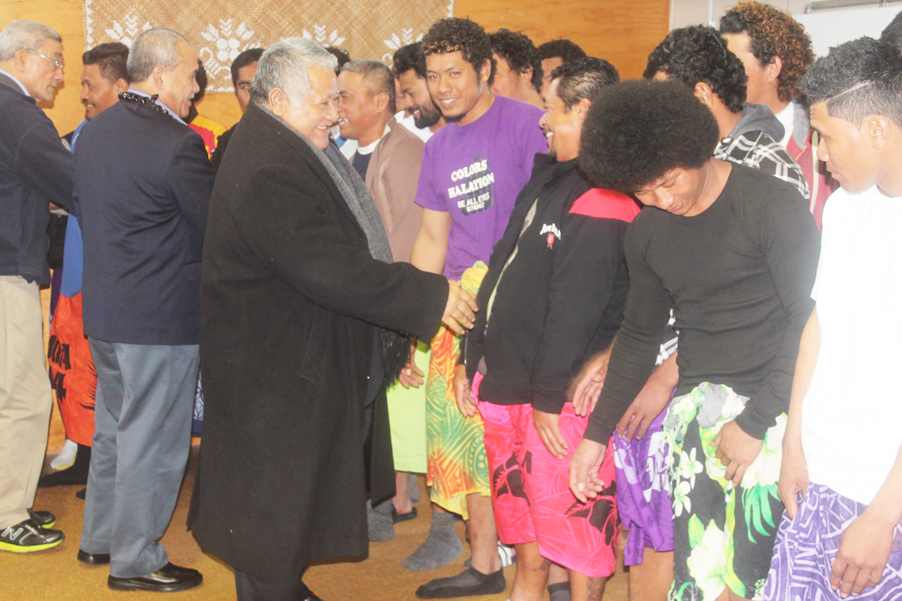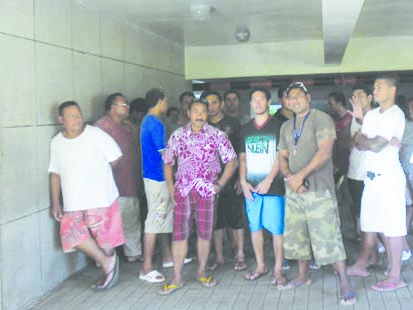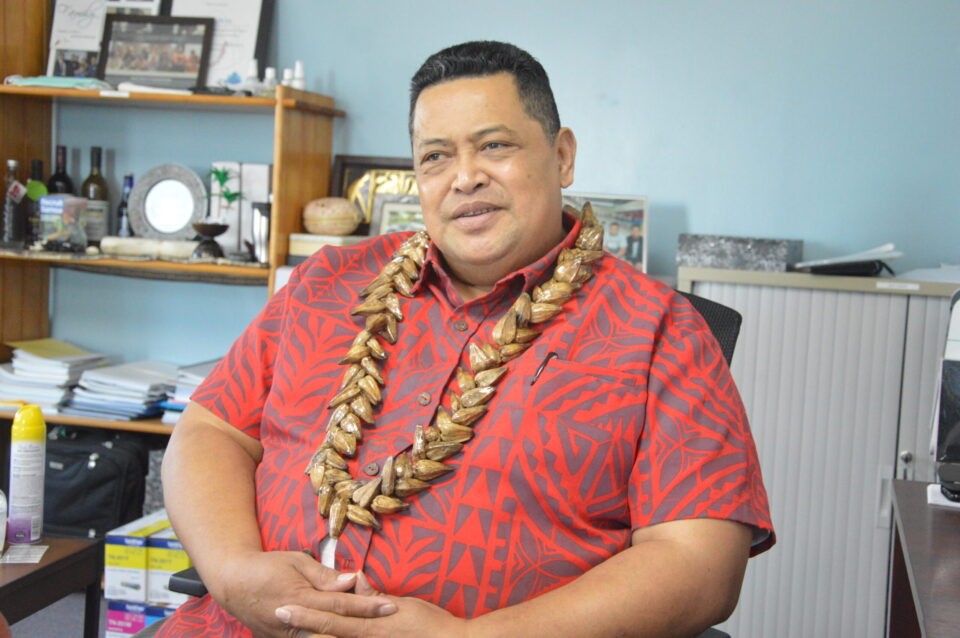By Staff Writer

Workers under the Recognized Seasonal Workers scheme or RSE have little to worry about after being stranded in New Zealand at the end of working contracts.
The same also for the more worrying concerns whether they are still wanted back after reports that the loss of jobs from the corona virus pandemic is forcing the jobless in New Zealand to step in and take over.
The Ministry of Commerce Industry and Labour (MCIL) CEO, Pulotu Lyndon Chu Ling, has assured that all are under control.
The RSE scheme in New Zealand is under the MCIL watch with more than 2 thousand Samoan workers, counting those in the carpentry and meat works as well.
The majority are on contracts of up to 9 months under the RSE scheme compared to the longer contracts of up to 3 years for carpentry and meat works.
The RSE workers end their contracts early and are caught up in the coronavirus pandemic travel restrictions coming home.
“There are roughly 600 workers left to fly home from New Zealand whose contracts expired last May, April and June,” CEO Pulotu told Newsline Samoa during the week.
“A chartered flight a fortnight ago brought in 302 workers with a second one scheduled for the end of this month, August to bring home the same numbers as the first one.
“Other workers made their way home on scheduled passenger repatriated flights so we should have less than 300 workers still to return after August.”
Allowing the stranded workers to return took a while to organize with negotiations over border control requirements under Samoa’s pandemic security lockdown.

The isolation of workers arriving in large groups had to be sorted out properly as well with costs and other necessary commitments involved.
A group of 117 workers included in the first chartered flight were held in isolation at their home village of Poutasi, Falealili.
The group served out the required 14 days of quarantine inside a village hall last Friday.
“Chiefs and orators of Poutasi offered to host the workers in isolation and provide all the necessary care for their stay.
“NEOC and the Ministry of Health were still responsible for the usual security services like all the others isolated under the lockdown terms and conditions.”
CEO Pulotu noted that it would be the ideal arrangement for other village groups the size of the Poutasi workers but most were one or two selected from each village.

Organising them into groups for isolation inside selected villages similar to the arrangement with the Poutasi workers was not an option.
“The decision to host them in hotels was the preferred choice to help out with the hotel industry that has been seriously impacted by the pandemic.”
There are still around 500 workers still working through their contracts under the RSE Scheme set to expire in the few months remaining of the year.
The RSE workers struggle to get home with all the red tapes holding them back, has earned a healthy appreciation from the MCIL boss for the New Zealand farmers association body, Apple and Pears Incorporated.
All the organisational work at the New Zealand end with chartered flights, visa extensions, health and travel requirements became their responsibilities.
Samoa came in with isolation commitments and other obligations only when the workers arrived home.
“The reason the farmers ‘Apple and Pears Incorporated’ key role credits the top priority they place on our Samoan workers.
“ The majority of employers who hire workers under the RSE scheme hold top preference for Samoan workers because of their high standard of work.”
Pulotu conceded that there are issues and challenges with some of the workers but the majority are doing a good job.
Visa extensions or added work of between 2-3 months for workers is proof of the high regard the employers hold for Samoan workers.
The CEO also dispelled contract renewal concerns with the jobless in New Zealand from the effects of the pandemic, heading into the fruit picking industry for employment.
“It’s important for the farming community employers to rest our workers for at least two months so they can be brought back refreshed for the next harvesting season.
“There are special arrangements for the workers on their return to adhere to border control requirements like quarantine periods but that is all.”
The advantage for Samoa and other neighbouring Pacific Island countries under the RSE scheme is they are still free from the virus.
Once the virus spreads gets in that could pose a more difficult situation, according to the head of MCIL.
The RSE Scheme has become a major boost for the unemployed workforce for Samoa and other island members with a win win situation for the farming employers in New Zealand.
Australia is also starting to come into the scene with work schemes similar to New Zealand opening up for the island region.
A workforce of around 500 from Samoa are already contracted for work in Australia.
“We were lining up visits from Australian employers coming for recruitment visits to Samoa when the coronavirus closed the door to travel with the lockdown.
“ But the interest shows that work opportunities are starting to open up in Australia.”
Pulotu felt they have to work on the whole structure of Australia’s workers programme to be as highly efficient as New Zealand right now.
He agreed that Australia is a bigger market that New Zealand.
